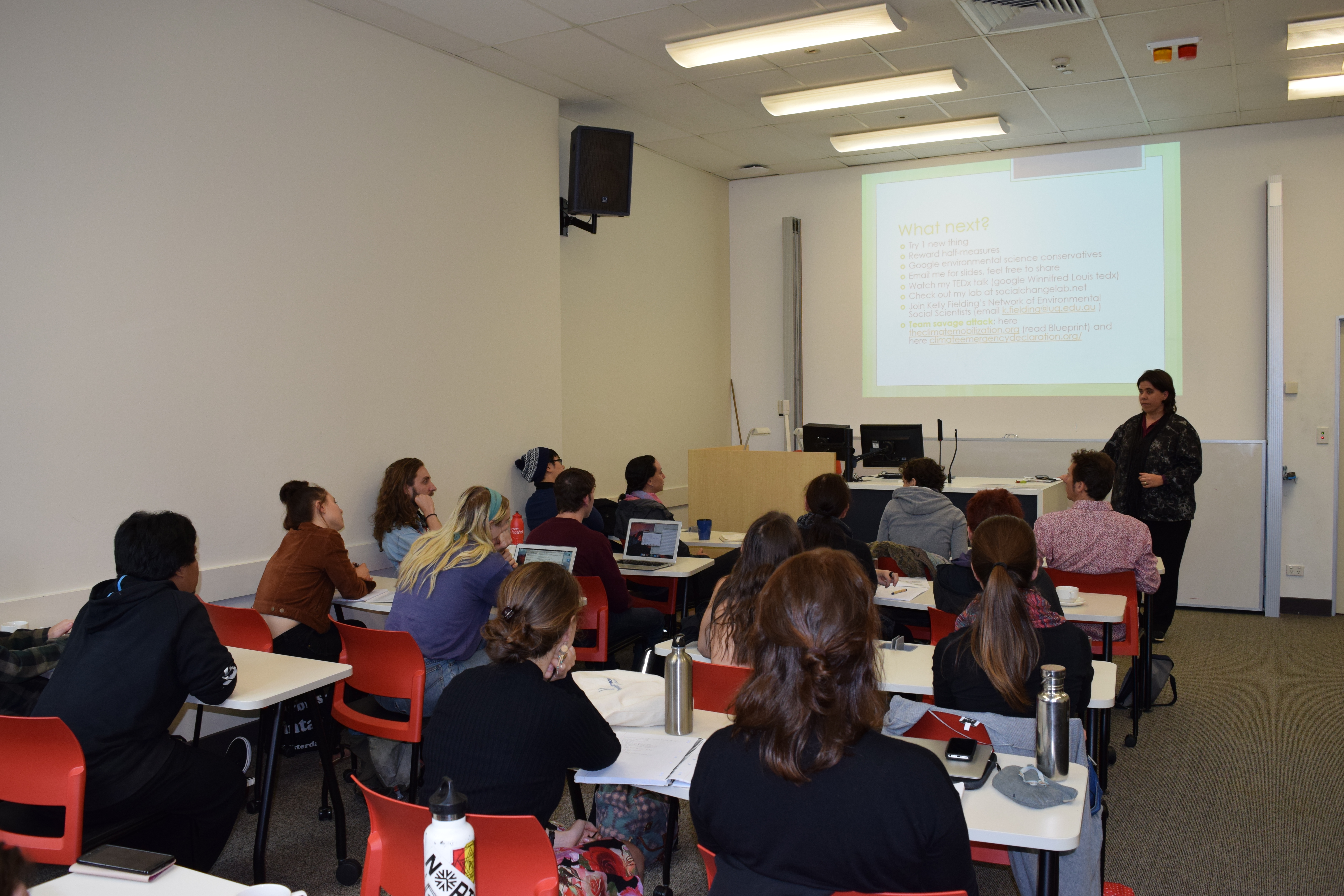 Do we have the power to save the world? According to this week's Green Office Update Session, yes we can—although, unsurprisingly, it's not going to happen overnight.
Do we have the power to save the world? According to this week's Green Office Update Session, yes we can—although, unsurprisingly, it's not going to happen overnight.
On Wednesday 14 June, Associate Professor Winnifred Louis from UQ's School of Psychology took a keen audience through 'Enviromental Activism 101: How to change the world'. So just how do we conquer such a mean feat?
First of all, we need to consider the challenges we face when we try to persuade people to take positive action. According to Associate Professor Louis, these are:
- building sympathy
- building awareness
- mobilising intentions
- turning good intentions in actions
- turning partisanship into bipartisanship.
In her discussion of these challenges, Associate Professor Louis made several key points about how we should go about successfully changing people's minds and inspiring them to act. 'If we knew how to save the world', she argued, 'we would already be doing it'.
But figuring out that process of how we can improve our environmental lot means first asking ourselves who we have the capacity to convince, and then convincing those people not by trying to 'convert' them, but by having a respectful conversation, listening to their perspective and finding common ground.
Here are just a few of Associate Professor Louis' other thought-provoking takeaways:
- The foundation for persuasion is sincerity and trust—the time for shrill condemnation as a form of environmental activism is over.
- Adopting a moderate rather than extreme stance is usually a more effective way to build sympathy in your audience.
- Consider the roles that social norms and identities play when you're trying to persuade others. Think about shared values you have with people you're speaking with, and how you can best relate to them. For example, if you're talking about climate change to right-wing voters, pitch the debate around renewable energy rather than climate change, since renewables are linked to technology and the economy and are thus more likely to resonate with more conservative voters.
- Build trust and relationships, and be welcoming towards those who are hesitant or conflicted.
- Keep your goals realistic. Creating change doesn't often happen overnight—rather, it happens incrementally, which means taking small steps and half measures and working gradually towards your goals.
- Celebrate your successes, however small—they all mean something and show that you're achieving what you set out to do!
A huge thank you to Associate Professor Louis for her wise words, and to everyone who attended this incredibly engaging session. Here's to changing the world!



